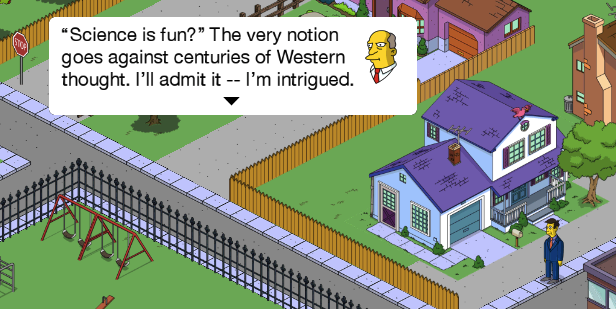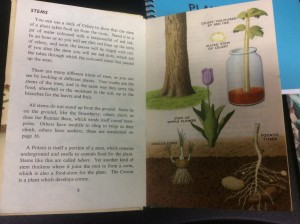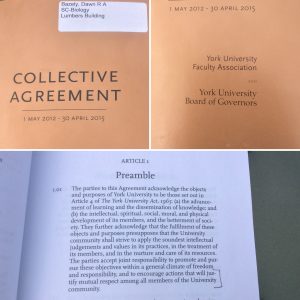Here's my belated June 1st post:
I've always believed that learning, teaching and doing science should be fun. Amazingly, while I've been having fun with this over the last 35 years, I've received many disapproving looks from science teachers, professors, and "serious" research scientists. I have concluded, that they have absolutely no sense of humour, and I've simply ignored their frowns, knowing deep down, that I was right, and they were wrong. My attitude is a large part of the reason why I'm a full professor today 😎.
It is true that doing science research IS mostly tedious, isolating, and repetitive, but humour gets you through the boring stuff. Humour helps me to focus, pay attention and be present in the moment. Given my research, which has involved counting the leaves of grass plants, numbers of twigs on a bush, and the steps of sheep, I well know that scientists must cultivate very lo-o-o-o-o-ong attention spans.
#PlantBiology #BIOL2010 students called 4 practice,passion,patience,perspiration,perseverence & persistence in STEM. pic.twitter.com/AdFqvylBFy
— YorkUScientists (@YorkUScientists) May 27, 2016
It's 40 years, since I taught species identification, and natural history as a City of Mississauga summer camp counsellor. At Camp Toteradaca, we counsellors were mentored and trained to plan and schedule our own weekly summer programming. How cool is that?
A big part of my programming involved my 8-9 year-old girl campers learning to identify plants, bugs and birds, and doing simple experiments. I still use my well known childhood Ladybird lab manual, Plants and how they grow! Over my life as a teacher, I have found that most children are fascinated by the same science-y things that I am.
Sadly, somewhere along the road to adulthood, many people lose confidence and interest in doing the stuff of science. I won't touch on the multiple reasons for this. I lay a lot of the blame at the feet of poor teaching, unconscious bias, and rising anti-intellectualism, where it's fashionable to diss science.
I also firmly believe that with the right citizen science project, the interest of people who have come to dislike science, or think they can't do it, can be rekindled. (Update in July 2016: A recent Guardian article in which Decca Aitkenhead wrote that she'd got straight As in her science exams, but hadn't really understood the science, alarmed me, and I tweeted that the author should come do science with me, and other biologists -- I know she'll get our part of science. And, yes, I agree with Brian Cox -- uncomprehending enjoyment of science-y stuff is fine, too.)
@DeccaJourno, come & do science with us. We'll make sure you understand the biology theory, right @VicMetcalf_NZ @IHStreet?
— ((( Dawn Bazely ))) (@dawnbazely) July 26, 2016
Since joining York in 1990, I have participated a whole lot in the Faculty of Science (prevously Pure and Applied Science and Science & Engineering) Speaker's Bureau. This volunteer programme sends faculty to K-12 classes to talk about our research, and to explain to children and youth that science is tough, but can be fun!
In my view it's essential for scientists to inspire and create confidence in youth about doing science, as a pre-emptive strike against their impending future loss of interest.
This is why I still spend time with children and teens, talking about my science, and doing science in general. I love to support, push and talk up, projects and programmes such as Let's Talk Science and Beakerhead.
This kind of activity is actually part of York University's mission, and thus, my work as a professor:
In May, I supported York's objectives relating to "the advancement of learning & the dissemination of knowledge" and "the betterment of society", by participating in two awesome public science activities:
- As a member of SEEDSatYorkU, I organized, with fellow scientists, Sapna Sharma, Roberto Quinlan, Margaret Hough and Samantha Stefanoff, to bring recently arrived Syrian refugees: children, and their parents, to York's Science Rendezvous at Markham Farmer's Market. There were lots of York's Let's Talk Science students volunteering for the day: a grand event for which Dr. Margaret Hough was the organizational lead.
Couldn't let the day pass without a selfie w/ @astroguypaul & @dawnbazely at the #YorkU #SR2016 @YorkUScience 😁🔭🔬⚗☀️ pic.twitter.com/HHM0XnB8wW
— Jen Mehrnoush Z (@JenZomederis) May 7, 2016
The #ScienceRendezvous smoke vortex competition, @yorkuniversity @YorkUScience @YorkUScientists! #yorku pic.twitter.com/tX1nolSs2U
— ((( Dawn Bazely ))) (@dawnbazely) May 7, 2016
2. working with #YorkU students, staff & faculty to bring Syrian refugee youth to @YorkUScience #ScienceRendezvous: https://t.co/adBpKdBRhp
— ((( Dawn Bazely ))) (@dawnbazely) May 5, 2016
- I was also delighted to be invited to welcome students to YorkU's Let's Talk Science challenge day at the end of May!
@YorkUScience @yorkuniversity @LetsTalkScience challenge day at Yorku #sciencespirit #science #awesomeday #yorku pic.twitter.com/jFxBCfqaG1
— LalishkaSH (@LoLiTaRsHaHd) May 29, 2015
Scary #PublicUnderstandingOfScience factoid, @LTSyorku @YorkUScience #SciComm matters #LetsTalkScience #LTSChallenge pic.twitter.com/rqGcx3d8gz
— YorkUScientists (@YorkUScientists) May 27, 2016
Barry & I enjoying swag from my talk @LTSyorku #LetsTalkScience Challenge! Tnx for the 🍫&☕️: #STEMFuel #LTSChallenge pic.twitter.com/MQS4zcqqr1
— YorkUScientists (@YorkUScientists) May 27, 2016




